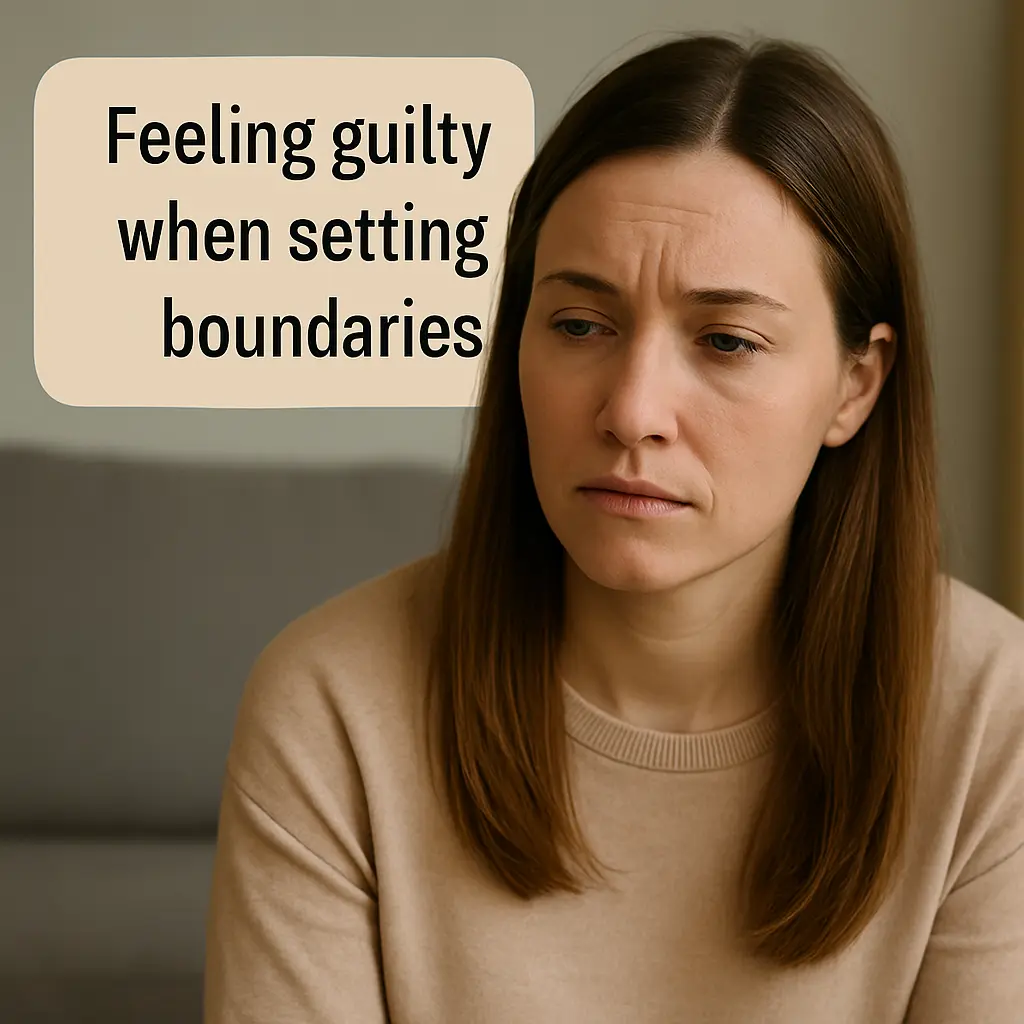Setting Boundaries in Relationships Is An Act Of Love

Setting Boundaries in Relationships is not about controlling others. It’s about protecting your emotional space, your time, and your values. Without boundaries, relationships easily slip into resentment, exhaustion, and confusion. You might find yourself giving too much, feeling unheard, or carrying responsibilities that aren’t yours to bear.
Clear boundaries create a foundation of respect. They help both people know what is acceptable and what is not. You’re not punishing anyone by setting a limit; you’re giving the relationship a real chance to thrive.
This process includes knowing your limits, speaking up without guilt, and sticking to your word. It might feel uncomfortable at first, especially if you’re used to putting others first. But healthy relationships are built when each person feels safe, valued, and free to express themselves.
Where in your life do you feel drained because your boundaries are unclear, or missing? How would things change if you protected your energy first?
Subscribe to Create Higher Vibrations!
Get Inspiration and Practical advice straight to your inbox.
Why Boundaries Matter
Setting boundaries isn’t about being harsh or pushing people away, it’s about ensuring that your needs are respected. Boundaries are essential for maintaining a sense of self-worth and protecting your physical and emotional space.
They let others know what is acceptable and what isn’t, helping us maintain healthy, balanced relationships. Setting and maintaining boundaries is crucial for our personal integrity and well-being.
Without boundaries, we might take on too much responsibility for others or feel guilty for putting ourselves first. Setting boundaries helps us honor our needs, express our feelings, and protect our energy.
For example, saying ‘no’ to working late when you need rest helps you recharge, you can be more present and energized in other areas of your life. Boundaries allow us to prioritize our needs without guilt, helping us love ourselves more deeply.
“Perhaps all the dragons in our lives are princesses who are only waiting to see us act, just once, with beauty and courage. Perhaps everything that frightens us is, in its deepest essence, something helpless that wants our love.” — Rainer Maria Rilke

The Benefits of Setting Boundaries
Setting boundaries improves mental health and creates meaningful connections. For example, setting a work-life balance boundary gives you more energy, which allows you to enjoy quality time with your family and build stronger relationships.
When you put boundaries in place, you can truly enjoy your time and prioritize your well-being. Self-care becomes a priority. Setting boundaries is an act of self-love that transforms your well-being.
Free yourself from taking responsibility for others: It’s not your job to make everyone else happy or solve their problems. Boundaries allow you to let go of that responsibility and focus on yourself.
This means recognizing that everyone is responsible for their happiness and choices and that you do not have to carry the weight of others’ emotions. The boundary you set is about protecting your mental well-being.
Boundaries help prevent burnout by limiting overcommitment. They create space for the things you love, whether it’s spending time with loved ones, pursuing hobbies, or simply resting. Honoring your needs helps you find peace and fulfillment in your relationships.
How to Set Healthy Boundaries
Setting boundaries takes practice, and it’s often easier said than done. The key is to start small and be consistent. Here are a few tips to help you get started:

Why do I feel guilty setting a boundary?
Feeling guilty when setting boundaries is common. This guilt often stems from deep-rooted beliefs and societal norms.
Why You Might Feel Guilty
Understanding the Guilt
Recognizing that this guilt is a learned response can be empowering. It’s not an indication that you’re doing something wrong but rather a sign that you’re challenging ingrained patterns.
Moving Forward
Setting boundaries is a form of self-respect. Over time, as you practice and reinforce them, the associated guilt will likely diminish.

Overcoming Self-Love Challenges
It’s normal to feel guilty when setting boundaries if you’re used to putting others first. People may react negatively because they benefit from your lack of boundaries.
Their reaction is not your responsibility. Setting boundaries is a healthy way to prioritize your mental and emotional health.
Recognize that setting boundaries is an act of love for yourself and others. It’s okay to distance yourself from people who don’t respect your boundaries.
Distancing yourself can actually improve your relationships. It creates space for mutual respect to grow and for genuine connection to form. Loving relationships require clear boundaries to thrive.
If someone pushes back against your boundaries, remind yourself why you set them. Boundaries protect your peace and well-being. You deserve relationships that uplift you. A fulfilling relationship respects boundaries and supports personal growth.
Starting Today Is an Act of Self-Love
Think about moments when you feel overwhelmed or drained. Those moments point to areas where boundaries can make a big difference. Start small. Whether it’s saying “no” to a request, carving out personal time, or being mindful about what you share, each small step helps you move closer to better mental and emotional well-being.
Setting new boundaries can be the beginning of scaling new heights towards self-love and personal well-being.
Loving yourself means setting boundaries that honor your needs. Start today and take small actions to create the life you deserve. Each step towards setting healthy boundaries leads to a balanced and fulfilling life. The journey of reparenting ourselves by establishing firm boundaries is filled with transformative moments.
If you’re ready to dive deeper into building healthy boundaries, consider keeping a journal to track your progress or explore resources like the 10-Day Boundary Challenge on apps like Insight Timer. Taking small steps will help you stay consistent and remind you why boundaries matter.


